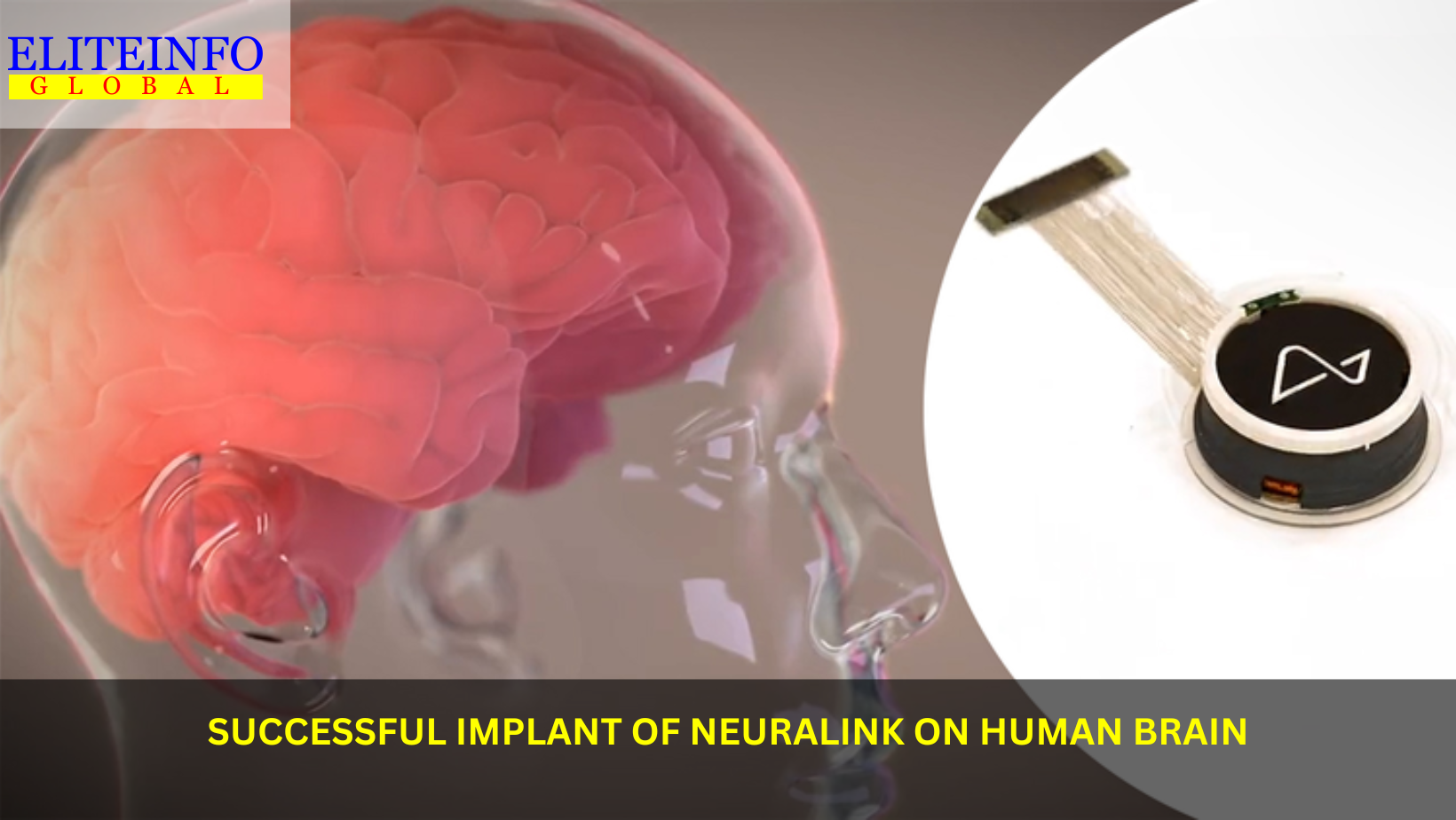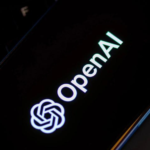Elon Musk, the visionary entrepreneur behind Neuralink, announced that the first human patient has received an implant from the company’s brain-computer interface (BCI) technology. The implantation took place over the weekend, and the patient is reportedly recovering well.
Neuralink, a startup founded by Musk, is developing a device that aims to help patients overcome paralysis and other neurological conditions by enabling them to control a computer cursor or keyboard using their thoughts. The implant includes 1024 electrodes distributed across 64 threads, and the company’s ultimate goal is to achieve a symbiosis with artificial intelligence.

The U.S. Food and Drug Administration (FDA) had given Neuralink clearance to conduct its first trial in 2023, marking a significant milestone in the startup’s ambitions. Neuralink’s first product would be called Telepathy, and the initial users will be people who have lost the use of their limbs.
The company has not yet disclosed the location of the trial or the number of patients involved. Neuralink has not registered with ClinicalTrials.gov, a central database with information on clinical studies funded or sponsored by industry and government.
Neuralink’s implantation follows the footsteps of other companies working in the field of brain-computer interfaces, such as Synchron, which gained FDA clearance to test a device in humans in 2021. However, Neuralink’s ambitious goals and the involvement of Elon Musk have attracted significant attention to the field.
The implantation of Neuralink’s device in a human brain is a crucial step for the company, but it is still early days for the technology. The patient will have to recover from surgery, and training someone to use a BCI can take several weeks. Neuralink’s implant has not yet been tested in broader markets, and it will need regulatory approval before it can be widely used.
Despite the excitement surrounding Neuralink’s progress, there are concerns about the safety and potential risks of brain implants. Brain surgery is not a trivial matter, and there are significant potential risks such as brain hemorrhage or seizures. Neuralink’s competitors plan to use their devices for similar purposes, and it remains to be seen which company will be the first to successfully integrate brain implants into everyday life.

In summary, Elon Musk’s Neuralink has achieved a significant milestone by implanting its brain-computer interface technology in the first human patient. The patient is recovering well, and initial results show promising neuron spike detection. However, there are still many challenges ahead for Neuralink and the broader field of brain-computer interfaces.
Some related topics:
What is neuralink and how does it work
Neuralink is a technology company founded by Elon Musk in 2016 that is developing a brain-computer interface (BCI) capable of translating thought into action. The company’s implantable device, called the N1 Implant, is designed to connect human brains directly to computers. The implant includes 1024 electrodes distributed across 64 threads that record neural activity. The implant’s underlying technology works in the same way as electrophysiology, capturing electrical chemical signals in the nervous system that spark as neurons communicate with one another. The implant’s advanced, custom, low-power chips and electronics process neural signals, transmitting them wirelessly to the Neuralink Application, which decodes the data stream into actions and intents. The company’s ultimate goal is to achieve a symbiosis with artificial intelligence. Neuralink’s first product, called Telepathy, aims to help patients overcome paralysis and other neurological conditions by enabling them to control a computer cursor or keyboard using their thoughts. The company has not yet disclosed the location of the trial or the number of patients involved. Neuralink’s implant has not yet been tested in broader markets, and it will need regulatory approval before it can be widely used.
How does neuralink compare to other brain-computer interface technologies:
Neuralink’s brain-computer interface (BCI) sets itself apart from other technologies in several ways. The N1 Implant, Neuralink’s flagship product, is fully implantable, cosmetically invisible, and designed to let users control a computer or mobile device anywhere they go. It includes 1024 electrodes distributed across 64 threads, which are highly flexible and ultra-thin to minimize damage during implantation and beyond. The implant is powered by a small battery charged wirelessly from the outside, enabling easy use from anywhere. The advanced, custom, low-power chips and electronics process neural signals, transmitting them wirelessly to the Neuralink Application, which decodes the data stream into actions and intents
Neuralink’s approach to brain-computer interfaces involves a surgical robot for implantation, and the company aims to create a generalized brain interface to restore autonomy to those with unmet medical needs. The company’s technology is capable of recording and decoding neural signals and then transmitting them, ultimately aiming for a symbiosis with artificial intelligence
While Neuralink’s technology is at the forefront of BCI development, it is worth noting that other companies are also working on brain-computer interfaces using different approaches. For example, some companies are developing electrodes that sit on the brain’s surface, while others are focusing on creating a seamless interface between humans and computers. Each approach has its unique characteristics and challenges, and the long-term success of these technologies will depend on factors such as safety, signal quality, durability, and user experience.
What are some other brain-computer interface technologies currently in development
Several companies are actively developing brain-computer interface (BCI) technologies. Some of these companies include:
- Neuralink: Founded by Elon Musk, Neuralink is developing an implantable brain-machine interface (BMI) device aimed at enabling people with paralysis to control machines and prosthetic limbs using their brain signals. The company’s N1 chip is designed to interface directly with over 1,000 different brain cells
- Bitbrain: Launched in 2010 by researchers at the University of Zaragoza in Spain, Bitbrain offers a range of state-of-the-art wearables and monitoring software. The company’s product applications range from controlled laboratories to society at large
- NextMind: Recently acquired by Snap Inc, the parent company of Snapchat, NextMind has developed a device that translates signals from the visual cortex into digital commands. The company’s technology allows computers to be controlled with brain signals.
- Blackrock Neurotech, BrainGate, and ClearPoint Neuro: These are other companies actively involved in developing BCI technologies, each with its own unique approach and system
These companies are at the forefront of BCI development, and their technologies have the potential to significantly impact various fields, including healthcare, communication, and human-computer interaction.










